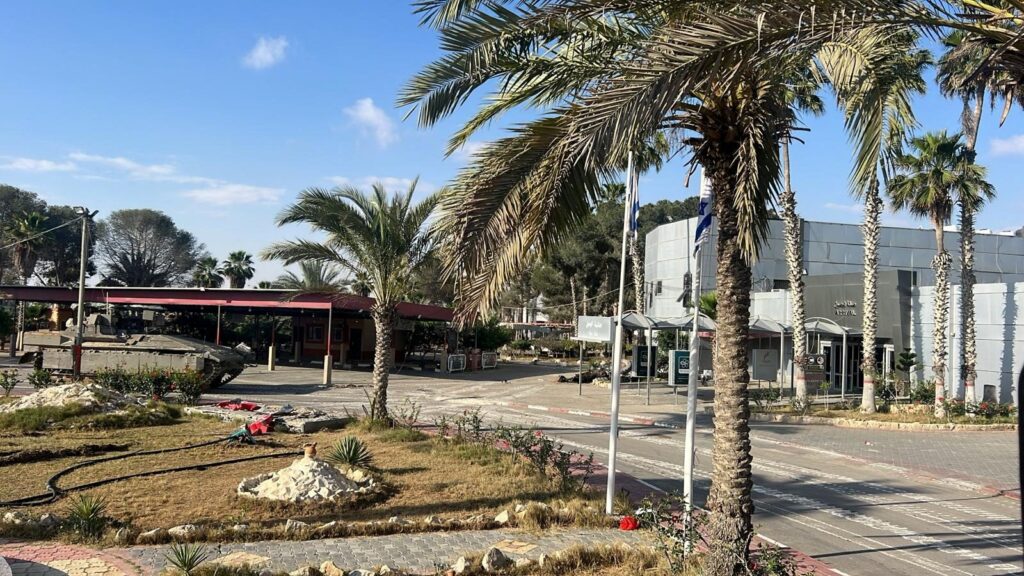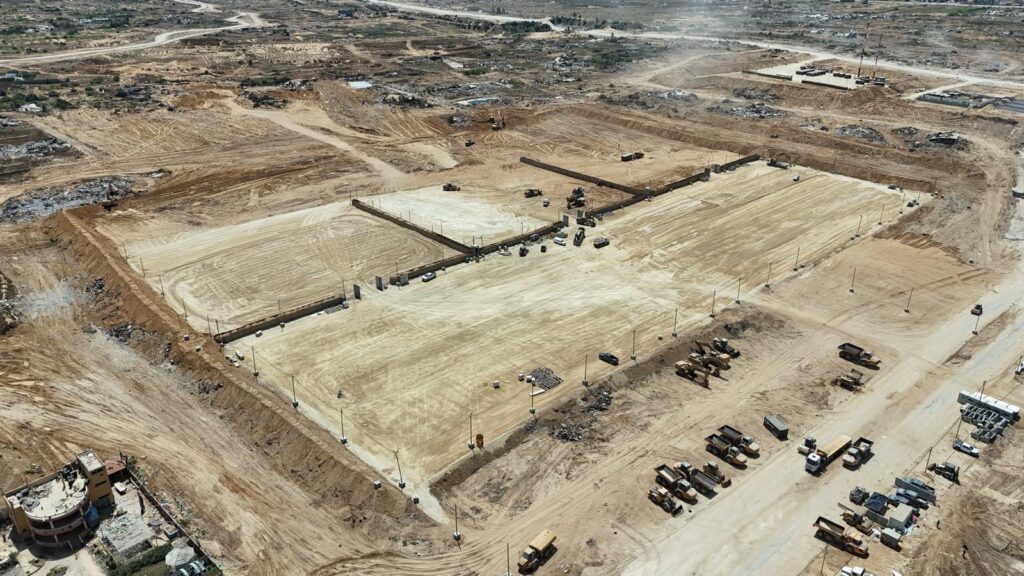Palestinian factions have warned of the risks of the floating port off the coast of Gaza, which the United States announced its operation, claiming to transfer humanitarian aid to the sector, considering any foreign presence in the area as “occupation forces.”
This comes as the US Central Command, “CENTCOM,” announced on Friday the movement of the first trucks of humanitarian aid through the floating dock into Gaza.
On Friday, Hamas said that it and other Palestinian resistance factions emphasize the right of the Palestinian people to receive the aid they need in the face of the humanitarian catastrophe caused by the occupation’s aggression on the sector.
They also renewed their rejection of any military presence of any force on Palestinian territory, indicating that any means of delivering aid, including the water dock, is not a substitute for opening all land crossings under Palestinian supervision.
In an interview with Anadolu Agency on Sunday, May 19, 2024, Hamas leader Sami Abu Zuhri said that any military presence on the borders of Gaza or in its port is a “new occupation” for the movement.
He explained by saying: “We emphasize that we do not accept that this step is a cover for any military presence, as this presence on the borders of Gaza or in its port is a new occupation for us.”
Hamas’ position on the floating port was followed by other positions from Palestinian factions, which also affirmed their rejection of any foreign intervention in the sector.

Creating alternatives for the occupation to continue its attack on Rafah
For its part, Fatah said on Sunday, May 19, 2024, that operating the floating port is a dedication to the occupation and “isolation” of Gaza, adding that the most viable options for relieving the sector are to stop the aggression.
Fatah spokesman Abd al-Fattah al-Doulah explained that Washington’s announcement “creates alternatives for the occupation to continue its attack on Rafah and full control of the sector.”
He added: “The most viable options for relieving Gaza are to stop the aggression and bloodshed and not to control the Rafah crossing, which is the main gateway for aid operationally compared to the floating port.”
He also added that other options include “opening all crossings to the sector, something that the United States can estimate,” accusing Washington of seeking to provide alternatives that serve Israeli Prime Minister Benjamin Netanyahu in continuing his massacres and exacerbating the humanitarian catastrophe for the people of the sector.
Meanwhile, Fatah called on the Palestinian people in Gaza not to deal with the floating port beyond being a passage for delivering humanitarian aid, “and to be aware of any attempt that might lead to using it as a passage for the forced, voluntary, or ‘humanitarian’ displacement of our people.”
The Popular Front warns of the risks of the floating port in Gaza
The Popular Front for the Liberation of Palestine said that the establishment of the American administration of a floating port on the coast of the Gaza Strip is cause for concern, warning of the dangers of using it to achieve other goals and plans such as displacement or protecting the occupation rather than transporting aid.
In its statement, the Popular Front warned “any Palestinian, Arab, or international parties from dealing with the US administration or working in this port,” stressing the need to open all crossings in the sector, including the Rafah land crossing, as an alternative to this port and to ensure the flow of aid to the sector without restrictions or conditions.

Moreover, it emphasized that “the Rafah land crossing is a purely Egyptian-Palestinian crossing, and its management mechanism is determined by the Palestinian party in agreement with the Egyptian party away from the control or intervention of the occupation.”
The Popular Front also reiterated “its rejection of any American, Zionist, or any other foreign presence on the Gaza Strip coast or its crossings, whether in Rafah or any other place on its territory, and confirms that it and the resistance will continue to deal with these forces as an occupying force.”
It is worth noting that in March, NBC reported that American officials said that “Israel is considering contracting with private international security companies to secure the delivery of aid in Gaza” through the floating dock.
Since the Israeli army seized control of the Palestinian side of the Rafah crossing on May 7th of this month, the main corridor for aid entry, and closed Kerem Shalom on the 5th of the same month, no humanitarian aid trucks have entered Gaza, worsening the situation catastrophically and sparking sharp international criticism of Tel Aviv.
Sunna Files Free Newsletter - اشترك في جريدتنا المجانية
Stay updated with our latest reports, news, designs, and more by subscribing to our newsletter! Delivered straight to your inbox twice a month, our newsletter keeps you in the loop with the most important updates from our website












